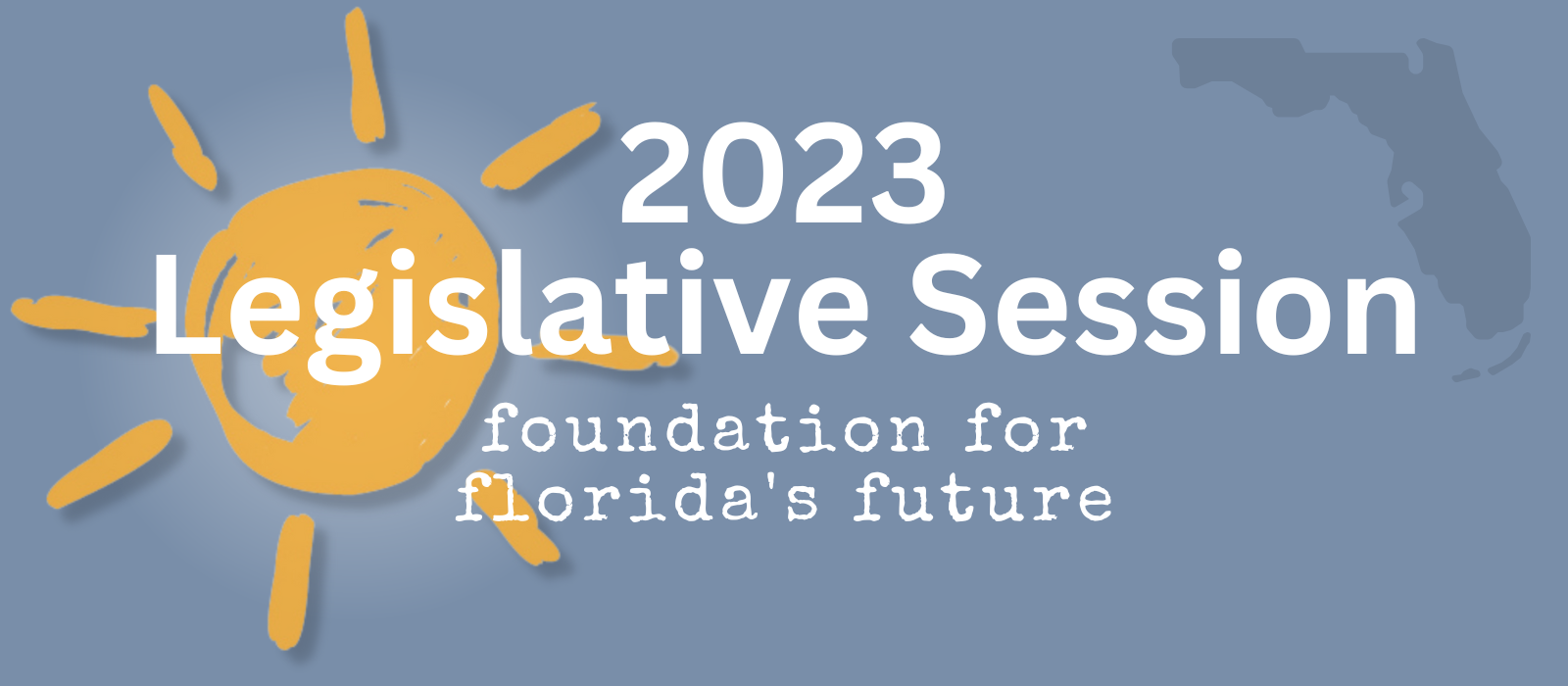

The 2023 legislative session begins tomorrow, Tuesday, March 7. Below are highlights of the Foundation for Florida Future’s (FFF) key policy priorities heading into the 2023 Legislative Session.
The House PreK-12 Appropriations Committee heard Speaker Paul Renner’s HB1, carried by Rep. Kaylee Tuck, which has a fiscal note of approximately $209 million. The bill is scheduled to be heard in its final committee stop on Wednesday, March 8.
The Senate also deliberated their version of universal school choice legislation last week. Sen. Corey Simon’s SB202 is identical to the House bill with regard to private school choice, but contains additional flexibilities for district-run schools. The bill will be heard, March 8 in the Senate Education Appropriations Committee.
One of the key priorities of Senate President Kathleen Passidomo is to improve Florida’s workforce education system. Senate Bill 240, sponsored by Sen. Travis Hutson, incorporates many policy recommendations endorsed by FFF. These include additional funding for career and technical education (CTE) programs, a focus on pre-baccalaureate workforce pathways and establishing incentive funding tiers that recognize pathways into high-wage, high-demand careers. Additionally, the bill would establish teacher apprenticeship programs as a priority for the state and would incentivize school districts and Florida colleges to use their workforce grants to support these programs.
Sen. Alexis Calatayud filed SB244 to expand Florida’s efforts to recruit and retain talented teachers. It would establish teacher apprenticeship programs, expand dual enrollment classes to cover teacher preparation coursework and waive certification requirements for individuals holding master’s degrees in certain subject areas and for retired first responders.
Sen. Calatayud is also carrying an FFF-supported math and literacy bill this year, SB1424. The legislation would prohibit the use of three-cueing practices for reading instruction throughout the state, including in teacher preparation programs. It would also establish the Department of Education as the approval authority for district reading plans to achieve the following: 1) ensure districts are not using three-cueing materials; 2) review how reading coaches are used within the district; and 3) evaluate how districts are prioritizing highly effective teachers between kindergarten and second grade.
The legislation would also require districts to notify parents if their student has a substantial deficiency in math as well as create an individualized progress monitoring plan for these students.
Rep. Jennifer Canady’s HB1259 addresses public school capital outlay revenue sharing to increase funding equity for charter schools and their more than 360,000 students. Specifically, the bill would amend local capital outlay surtax revenue sharing with a charter school. It would establish that the proportionate share of revenue that a charter school receives is based on the district’s capital outlay student enrollment, as opposed to their total enrollment.
It would also require local property tax revenue raised through the discretionary millage be shared with charter schools, beginning the following school year. Currently, the bill contains a $213 million appropriation for charter school capital outlay to supplement local funding.
